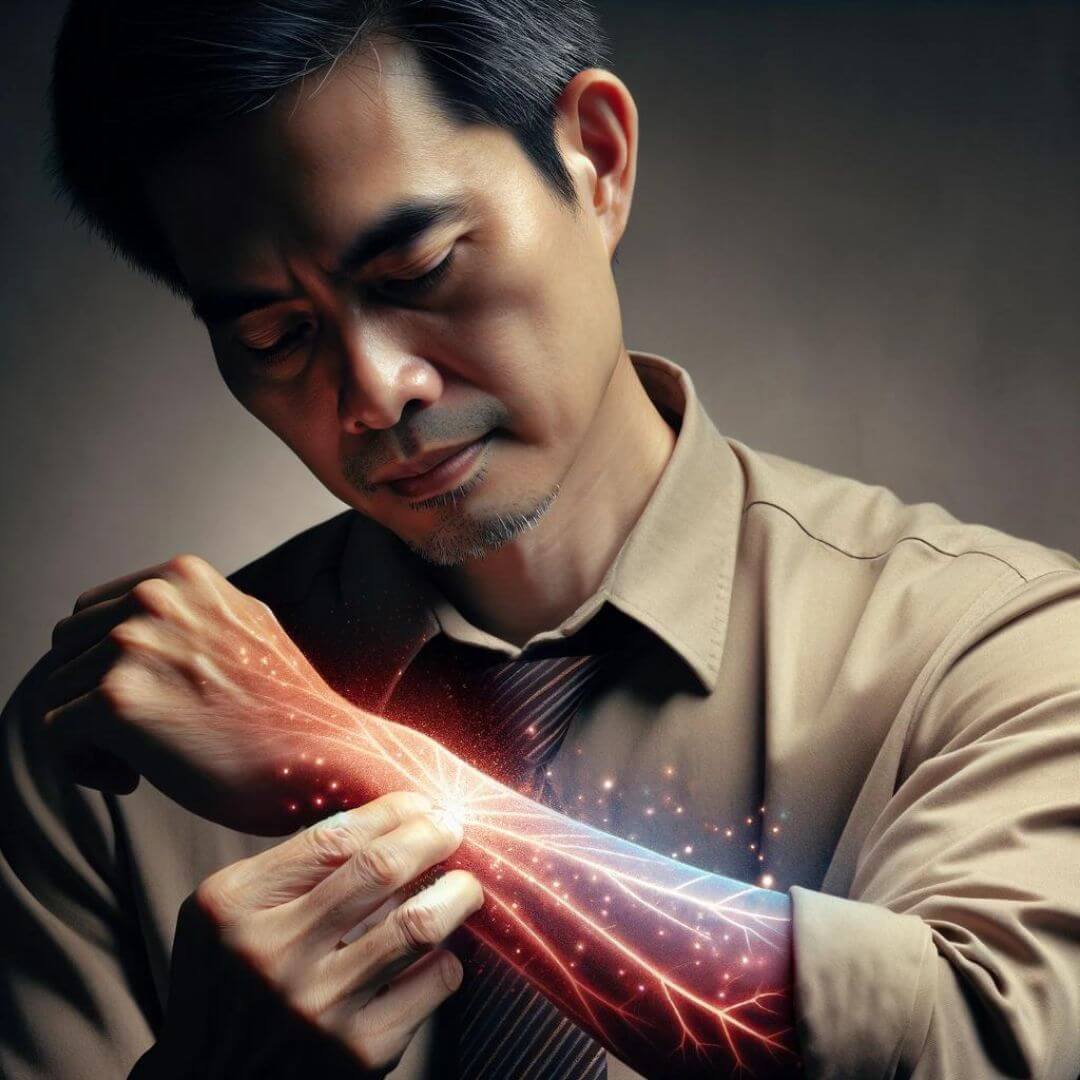Nerve damage from car accidents can range from mild to severe. It can affect different parts of the body depending on the nature of the injury. Common types include:
- Neuropraxia: This is the least severe type of nerve injury. It often causes temporary numbness or tingling.
- Axonotmesis: This involves more serious damage to the nerve fibers, potentially leading to longer-term issues.
- Neurotmesis: This is the most severe type of nerve injury. It involves a complete tear or rupture of the nerve.
What are the symptoms of nerve damage caused by a car accident?
The following symptoms indicate that you’ve sustained nerve damage after a car accident:
- Numbness and tingling: This is often one of the first signs. It typically happens in the hands, arms, legs, or feet.
- Weakness: Nerve damage can cause difficulty in moving the affected limb or area.
- Pain: You may experience sharp, burning, or radiating pain along the nerve path.
- Sensitivity: Nerve injuries can result in changes in sensitivity to temperature or touch.









